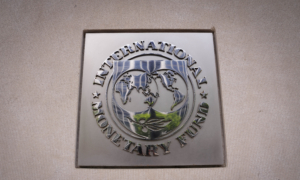The International Monetary Fund (IMF) released a handbook for global central banks regarding the development and implementation of central bank digital currencies (CBDCs). In addition to de-dollarization, a CBDC “could increase risks of flight to safety from retail bank deposits in periods of market stress.” During times of market volatility, customers withdraw their deposits and move it into safe assets to avoid losing money in scenarios like bank collapses. If CBDCs were available, pulling out funds from a bank and putting them in such assets will come across as a safe option for many people, thus triggering a bank run. The organization pointed out that CBDCs could offer “a safe store of value and efficient means of payment, which can increase competition for deposit funding, raise banks’ share of wholesale funding, and lower bank profits.” “CBDCs can replace cash, which is costly to distribute in island economies,” she said during a speech. “CBDCs would offer a safe and low-cost alternative to cash. They would also offer a bridge to go between private monies and a yardstick to measure their value, just like cash today, which we can withdraw from our banks.” “What we are careful about is the choice between wholesale and retail CBDCs. We think that wholesale CBDCs can be put in place with fairly little space for undesirable surprises. Whereas retail CBDCs, they completely transform the financial system in a way that we don’t quite know what consequences it could bring,” she said during a discussion. Wholesale CBDCs are meant to be used in interbank settlements as well as transactions between institutions and other market participants, while retail CBDCs are for use by the general population and other institutions. In a Sept. 12 press release, Mr. Emmer pointed out that unlike decentralized cryptocurrencies like Bitcoin, CBDCs are designed and issued by a government “and [transact] on a digital ledger that is controlled by that government.” This could give the administration the power to “surveil Americans’ transactions and choke out politically unpopular activity.” Talking about the issue, Mr. Emmer said that “agency reports to that executive order have made it clear that the Biden Administration is not only itching to create a CBDC, but they are willing to trade American’s right to financial privacy for a surveillance-style central bank digital currency.” “We’re not going to let this happen,” he said. The CBDC Anti-Surveillance State Act “ensures the United States digital currency policy is in the hands of the American people—not the Administrative State—so that it reflects our American values of privacy, individual sovereignty, and free market competitiveness.” On Sept. 20, the House Financial Services Committee passed the bill. There is a “risk that a CBDC would provide not only a window into, but potentially an impediment to, the freedom Americans enjoy in choosing how money and resources are used and invested.” A CBDC could also lead to the politicization of the payments system, potentially undermining the independence of the Fed, Ms. Bowman said. “Look no further than China, in seeing the impact of centralized digital currency,” he said. “The People’s Bank of China uses its central bank to monitor citizen behavior, allowing for the surveillance of spending habits and to cut off access to goods and services.”



